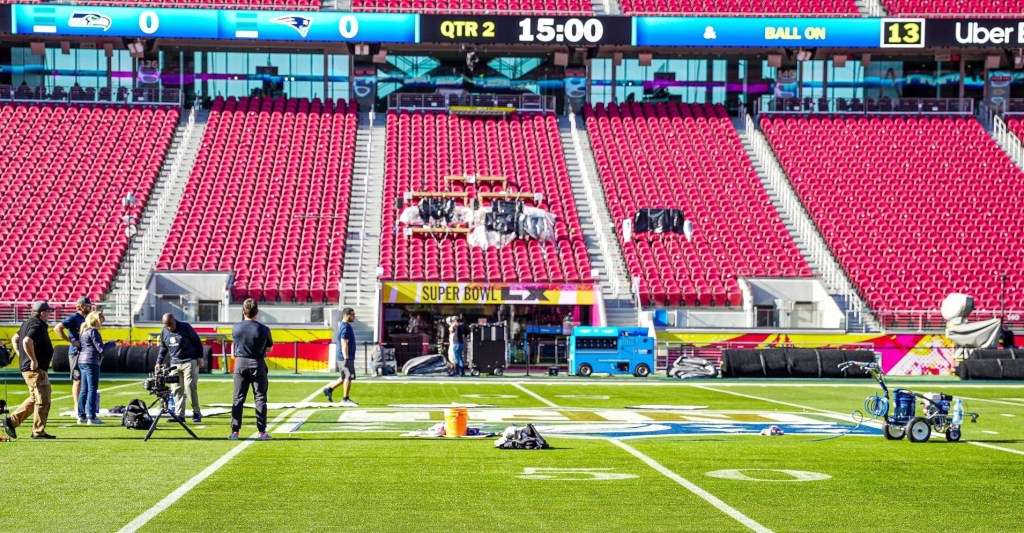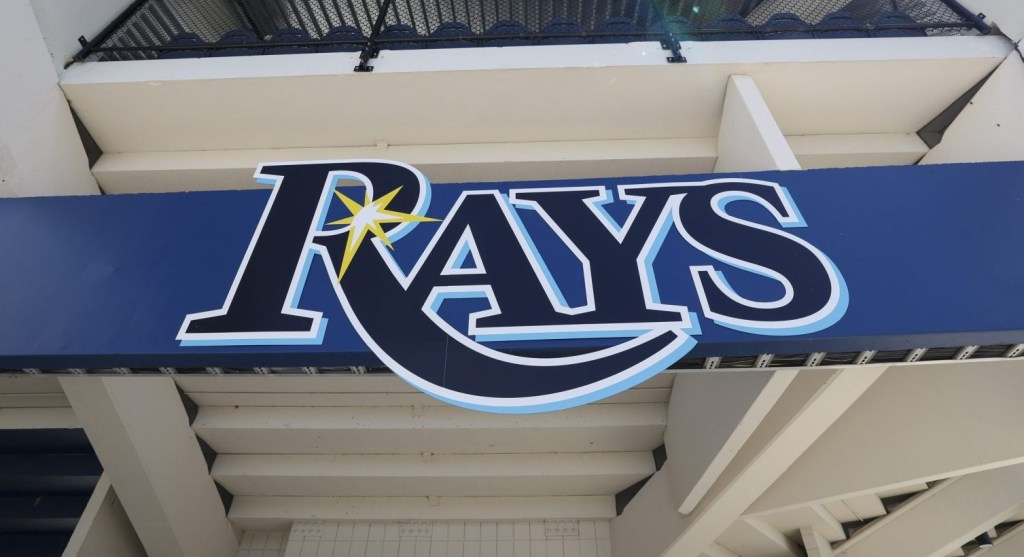Cosm, the immersive technology and venue company, has finalized plans to develop a new location in Detroit, its fourth to date—but the much-discussed venture is already working on much bigger plans.
The planned downtown Detroit location, to be located in the city’s existing sports and entertainment district, will join existing Cosm sites in the Dallas and Los Angeles metro areas, and another on the way for downtown Atlanta. Influenced in part by the recent resurgences of the NFL’s Lions and MLB’s Tigers, and record-setting attendance for the NFL draft, the new site taps into one of the most fervent sports markets anywhere. A specific development timetable is not yet finalized, but the Detroit location is loosely targeted for a 2026 opening.
“There are a lot of things to like about Detroit. We see this as a very opportunistic play,” Cosm president and CEO Jeb Terry tells Front Office Sports. Terry was an NFL offensive guard before moving into his business career. “It’s a market that has all the things that we’re looking for.”
The planned new spot is also a result of an ongoing collaboration between Cosm and Cavaliers owner Dan Gilbert, who is a financial backer of the company and also a key figure in the ongoing revitalization of downtown Detroit through his Rock Ventures.
“Detroit has always been a sports city, and this is reflected by all four [major] professional sports teams being in the downtown core,” said Kofi Bonner, CEO of Bedrock, the Gilbert-controlled real estate firm playing a key role in the Detroit development. “Cosm provides a new outlet for fans to experience their favorite team, and we are confident that its revolutionary technology will help bring guests to the front row of the world’s biggest events right here in Detroit.”
The latest announcement, however, is just the latest step in a furious run of activity in the last few months. That includes a $250 million funding round, the addition of new programming such as the NFL, MLB, NBA, NHL, college football, Premier League, U.S. Open tennis, and UFC, among others, the announcement of the forthcoming Atlanta location, as well as expansion plans to ultimately develop more than 100 sites.
“We’re not the venue of next. We want to be the venue of now,” Terry says. “We are developing something we believe can deliver truly differentiated and additive value for the fan.”

Influenced By Everything
Boasting a curved, panoramic screen with an 87-foot diameter and 12K video resolution, there are some obvious influences for Cosm, including the Sphere in Las Vegas that has recently ventured into live sports, as well as IMAX movie theaters. But in the minds of Terry and other company leaders, learnings for Cosm come from all types of virtual and augmented reality, combining into something unique and what it calls “shared reality.”
“Anything that provides that immersive reality is an influence. But we want to take it a step further, have people feel like they’re really there, but still have that communal experience,” Terry says.
Fans are clearly responding. Last Saturday, for example, hundreds of UFC fans were lined up before 9 a.m. outside the Inglewood, Calif., location for an 11 a.m. event—and on the morning after World Series Game 1 and several other major sports events happening in the Los Angeles area.
“That’s the kind of thing we’re after, where coming to a Cosm location is really something special,” Terry says.
Not Just About the Games
The sports content, complete with its dramatic, viral moments such as Freddie Freeman’s walk-off grand slam during Game 1 of the World Series, has certainly been a buzzy touchpoint for Cosm, and the company has a core revenue stream from its dynamically priced tickets, which can exceed $200 each. Its content licensing deals have run the gamut between various leagues, networks, and distributors, and have included a mix of structures including fee-based agreements and revenue-sharing pacts.
But there are other critical parts of the Cosm operation, too. One is the food and beverage component, and each location features high-end bars, wait service, and an extensive and elevated menu. It’s all managed and staffed in-house, instead of subcontracting that operation like many stadiums and arenas to a concessionaire.
“We don’t want fans to come and have this feel ordinary. This isn’t just sh—y popcorn. This isn’t fast food. And this isn’t a beer hall,” Terry said.
Cosm, meanwhile, also has additional revenue streams where it licenses its technology out to cultural institutions such as planetariums and science centers.
Controlled Growth
Cosm’s aggressive growth aspirations—which include a planned announcement of at least four more locations in the next six months—recalls other, prior high-flying companies such as Peloton and Topgolf that have since run into various issues.
Terry, however, insists that the diversified revenue model and the differentiated experience of Cosm provide critical guardrails. The funding round, completed in July, includes industry heavyweights such as Gilbert and investment vehicles controlled by David Blitzer, co-owner of numerous pro sports teams, and former Bucks co-owner Marc Lasry. That funding placed a valuation of more than $1 billion on Cosm.
The next big inflection point, meanwhile, could come if Cosm is able to complete an agreement to show Super Bowl LIX in its venues. Its recent deal with the NFL is only for select regular season games, but the company certainly has aspirations for the league’s biggest matchups.
“We’ll see if we can get there,” Terry says of showing the Super Bowl. “It would be a special opportunity.”
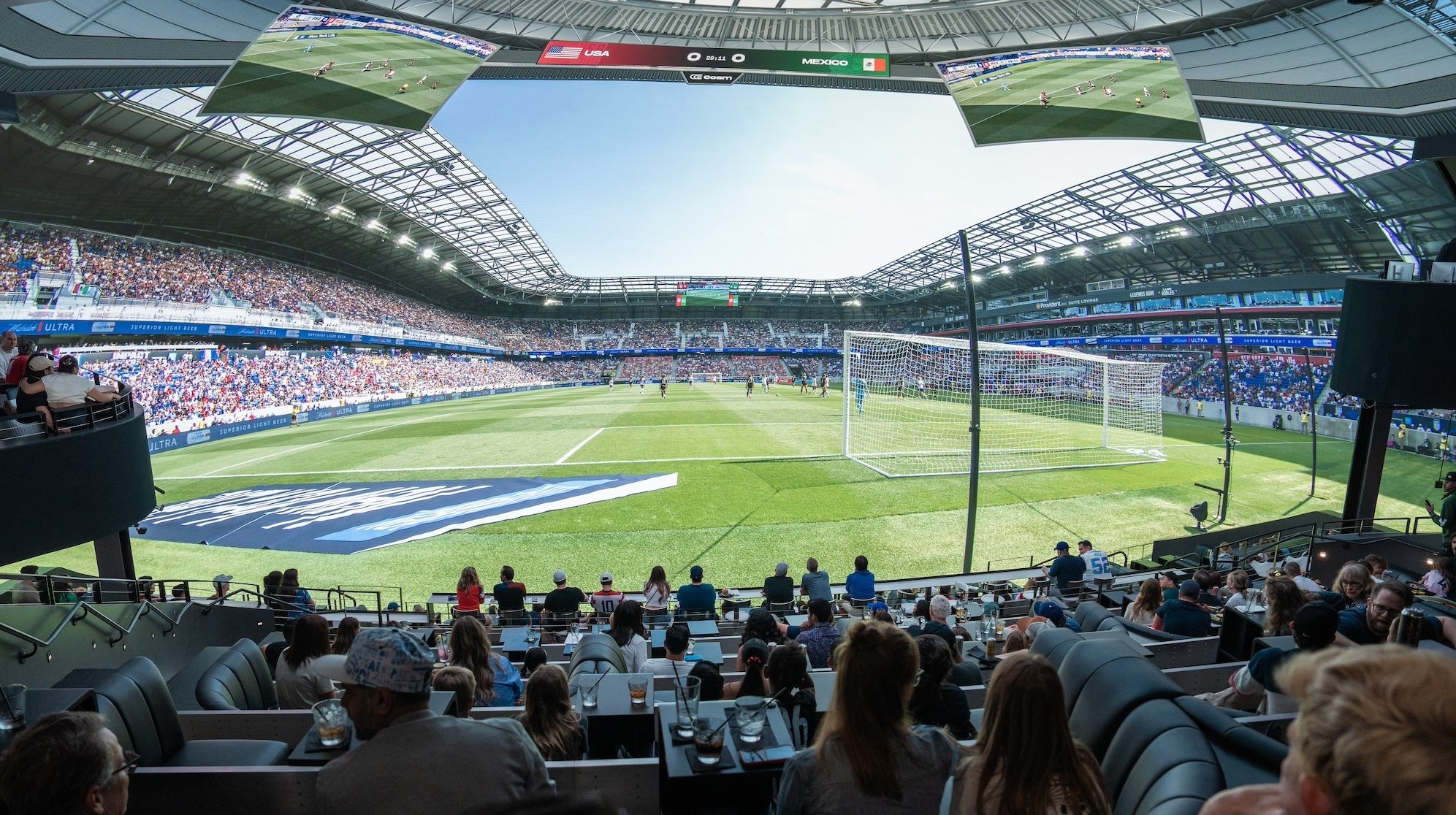

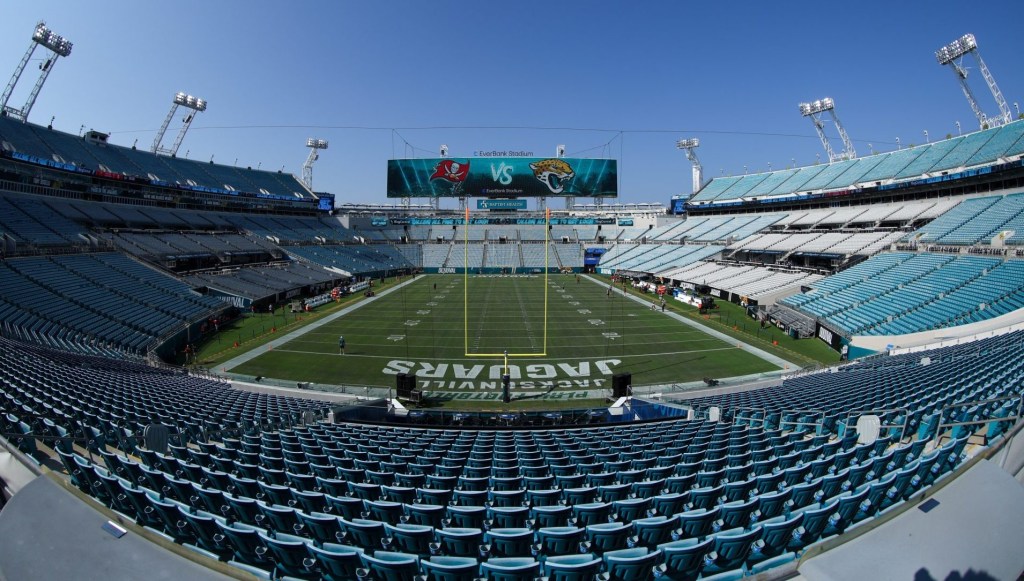

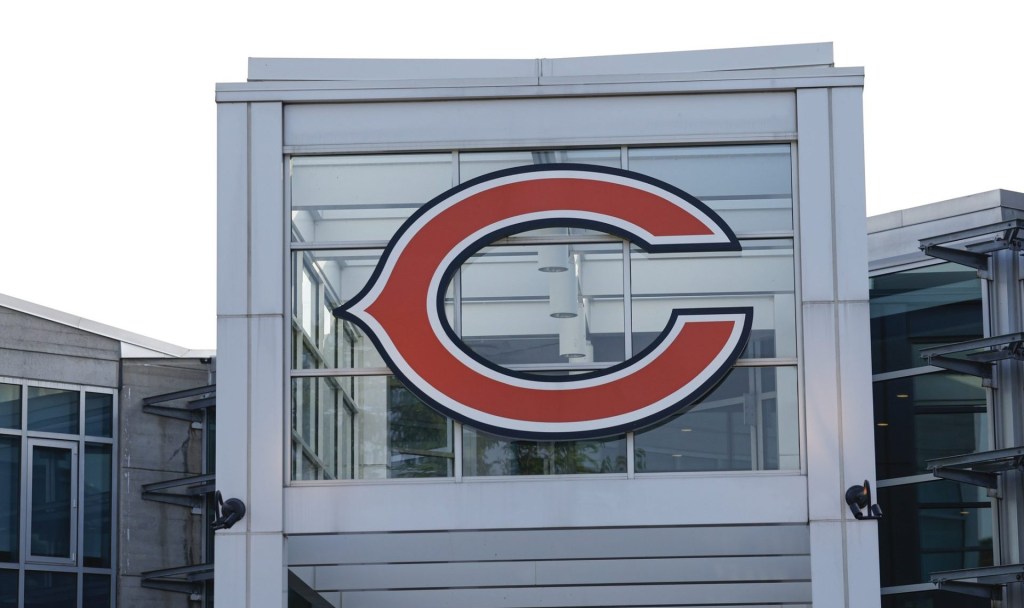
![[Subscription Customers Only] Jul 13, 2025; East Rutherford, New Jersey, USA; Chelsea FC midfielder Cole Palmer (10) celebrates winning the final of the 2025 FIFA Club World Cup at MetLife Stadium](https://frontofficesports.com/wp-content/uploads/2026/02/USATSI_26636703-scaled-e1770932227605.jpg?quality=100&w=1024)








